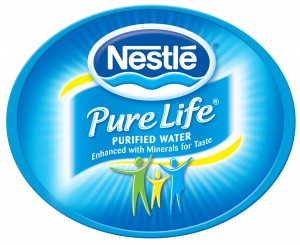It is a common fallacy that corporations should only be concerned about making money; they should also care about society’s welfare. Businesses are responsible for making decisions based on its own interest and benefits as well as the community’s health. Successful corporations are always able to invent new products or services that can improve the society’s ills, and they follow the Stakeholder Theory, which is a theory that suggests businesses to pay attention to every one of the stakeholder in the entire company.

When associated with good business ethics, words like truth, fairness, qualified, obligation, etc. come up to mind. However, the world’s biggest bottled water company, Nestlé, violates people’s view on good business ethics. Each year, Nestlé takes millions of litres of fresh water from wells in B.C. for free, and they bottled and sell it back to the citizens at a much higher price. A great number of residents living in Hope share the same aquifer with the well that Nestlé draws from, thus, many of them are concerned. Due to the fact that B.C. lacks underground water regulation, there are no mandatory rules that says Nestlé have to report on how much water they have taken back to the government.
So what will happen if Nestlé continue taking water without any regulation, and the citizens have no idea how much they have taken?
Nestlé Waters Canada’s director of corporate affairs, John Challinor, has replied that Nestlé do report voluntarily back to the local government. However, people are not satisfied with his answer because if Nestlé does not have any mandatory underground water regulation, they are able to stop reporting at any time. Numerous people persist that regulations should be implemented in order to achieve fairness.
Source: